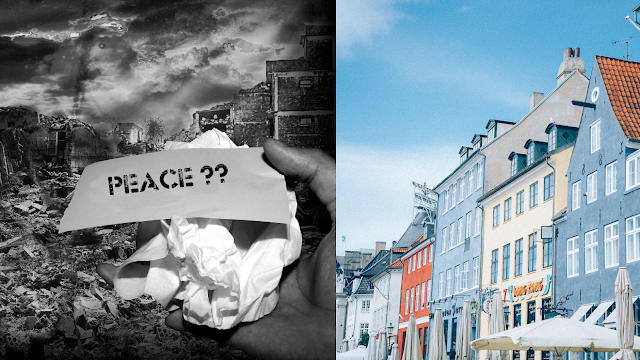A peaceful world really comes down to choice because we all carry with us, as human beings, not just the capacity to be kind, but the choice to be kind.
''This is my simple religion. There is no need for temples; no need for complicated philosophy. Our own brain, our own heart is our temple; the philosophy is kindness.''
—Dalai Lama
Kindness is defined by most folks as a behavior marked by ethical characteristics, a pleasant disposition, and concern for others. It is known as a virtue and recognized as something of high social value in almost all cultures and religions.
What does kindness mean to you? Am I kind enough in this topsy-turvy world? Is it even possible to practice kindness consistently?
Everyone has heard the Golden Rule, but not everyone takes it to heart. Kindness often gets overlooked as a sign of weakness, and to an extent, it can be—there is such a thing as being too nice. But a little kindness can still go a long way.
''The vagus regulates how efficiently heart rate changes with breathing and, in general, the greater its tone, the higher the heart-rate variability and the lower the risk for cardiovascular disease and other major killers. It may also play a role in regulating glucose levels and immune responses.
In addition, and relevant to the study, the vagus is intimately tied to how we connect with one another — it links directly to nerves that tune our ears to human speech, coordinate eye contact and regulate emotional expressions. It influences the release of oxytocin, a hormone that is important in social bonding. Studies have found that higher vagal tone is associated with greater closeness to others and more altruistic behavior.'' - Maia Szalavitz
Being kind can also make you happier. It feels good to be nice and help others and it can physically make you feel happier. There is a chemical reason for that.
When a person performs an act of kindness the brain produces dopamine, associated with positive thinking. Secondly, the brain has its own natural versions of morphine and heroine: endogenous opioids, such as endorphins. It is believed that when a person does an act of kindness they feel good on a chemical level thanks to the production of these endogenous opioids.
________
Kindness Legacy: How Small Acts of Kindness Create Global Impact
Denise believes that we are actually born with a sense of kindness but the world we live in changes how we react to it. She speaks to how we are so busy in today’s society that we have become thoughtless in our daily routine, and how it is this society that dictates what is acceptable, and therefore what we think, say and do. Denise’s call to action is to instill the thought that when we become aware of our thoughts, our actions, and our words, change happens; and that by practicing perpetual kindness, from one person to the next, we can move individuals to do the same, creating a global shift.


Comments
Post a Comment